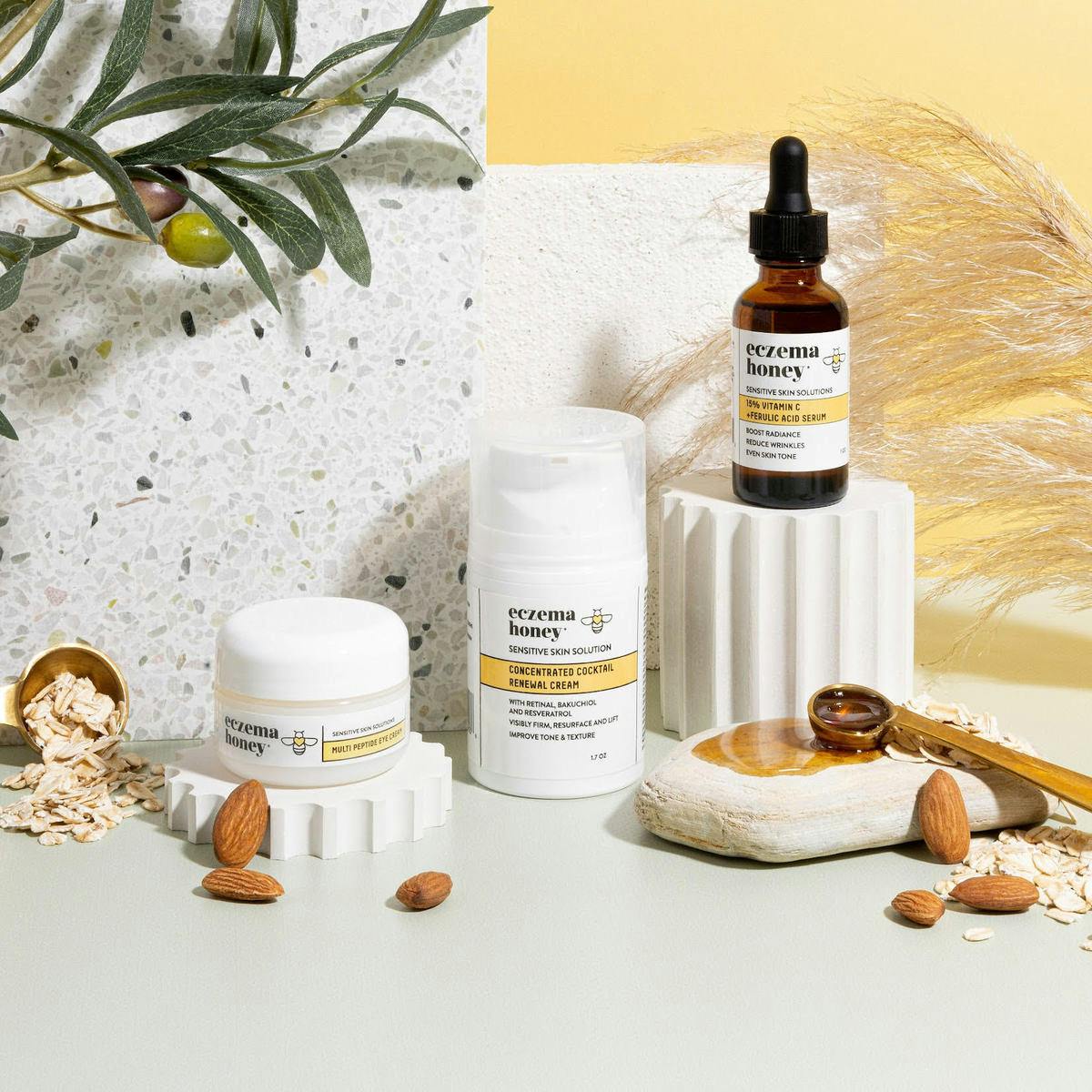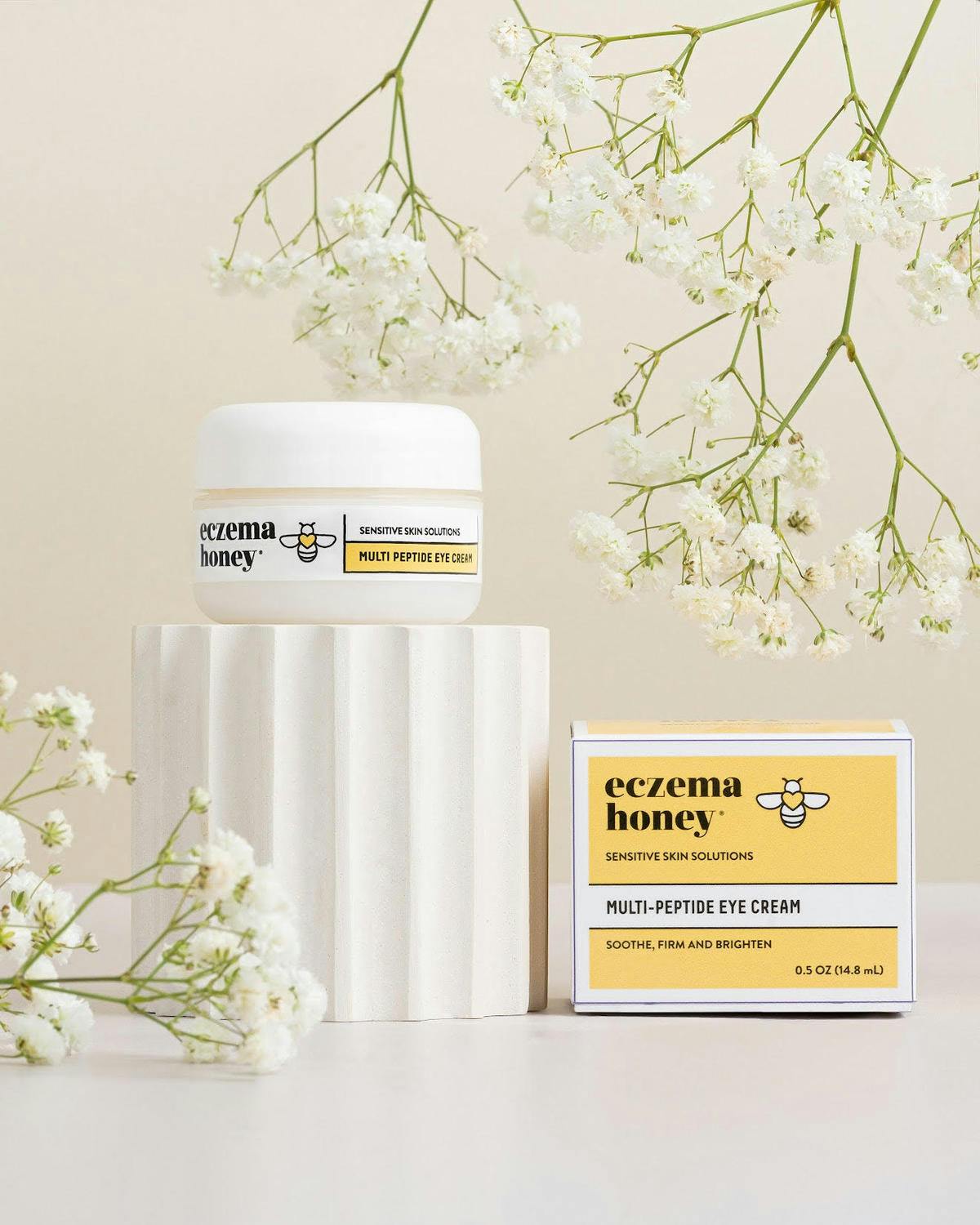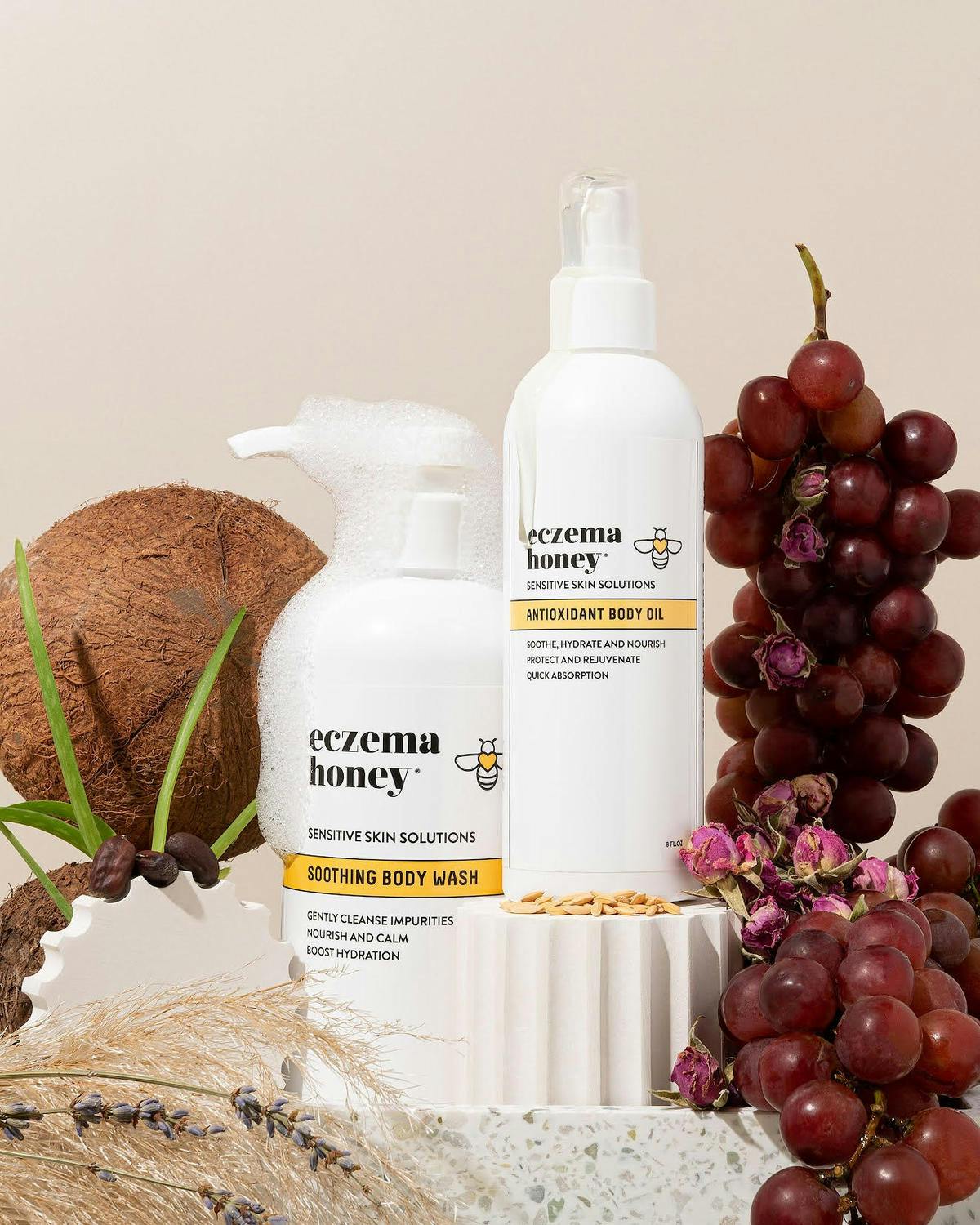The bee and honey industry has been abuzz for almost two decades. In 2006 it was first reported that there were problems afoot with Colony Collapse Disorder (CCD), through which adult honeybees were disappearing.
Opinions are divided over what’s causing the decline in bee populations elsewhere, but it’s believed to be a combination of factors: the varroa mite, pesticides, pollution, habitat and forage loss, and extreme weather.
And while it seems bees can’t live with us, we can’t live without them. Without these tiny flying beings, we’d lose a third of the food we eat, since they pollinate it, and 80% of flowering plants. A study by the University of Reading in the U.K. showed bees contribute £690 million ($850 million) annually to the U.K. economy.
While bees may pollinate our food, they’re also valuable in another way: They give us honey, and without them, we’d have none.
Honey antioxidants can help with conditions including cardiovascular disease, depression, coughs, and wounds, though eating local honey for allergies has been largely debunked.
Honey is a $9 billion industry worldwide, and in the U.S., despite a growing bee-keeping industry, about 70% of honey is imported.
Honey remains popular as a product in its own right, and as an ingredient. According to SPINS, as an ingredient, honey’s use is up, particularly in refrigerated milk, margarine and plant-based spreads, and loose-leaf herbal teas.
Honey’s also being used more in medicine and personal health products. Sales of these products containing honey jumped 67% in the year ending June 12, 2022, according to SPINS. There was particular growth in homeopathic children’s medicines, and body and massage oils.
Companies in the U.S. and beyond are waking up to the benefits of honey, as well as the plight of bees, and highlighting both through programs and products.
Hives for bee health
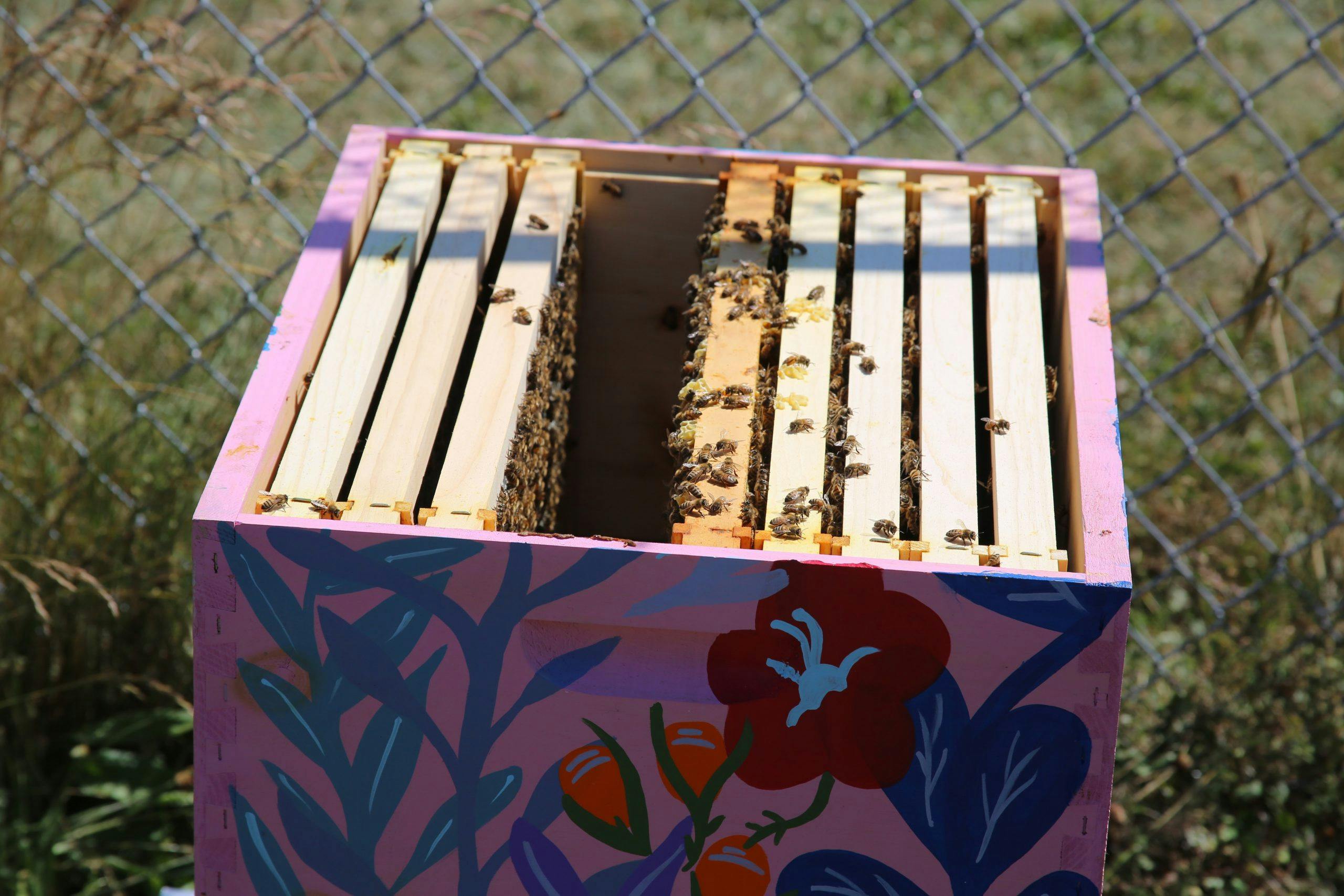
Bees are so important to The Giant Co. that it just added two new beehives, home to 30,000 honeybees, near the company’s seven-acre pollinator-friendly solar field at its corporate headquarters in Carlisle, PA. The hives will house 450,000 honeybees in nine beehives by next year.
In partnership with Planet Bee Foundation, The Giant Co. also awarded grants totaling $10,000 to five Pennsylvania beekeepers. They will use the funds to replace bee colonies, rebuild beehives, and continue research.
Manuka honey
We’ve all heard the buzz around manuka honey, but what is it?
Manuka honey comes from New Zealand, from a tree of the same name. The Maori population has used it for centuries and recent studies show it has antibacterial, antioxidant, antiviral, and immune support properties, among others.
Of course, as news of these superpowers hit the press, companies began capitalizing on it, and now the market’s flooded with manuka honey products.
Honey as food
Honey’s being used in everything like teas, cereals, and to coat various snacks such as nuts.
Runamok has a line of honey with flavors such as Szechuan Peppercorn and Chipotle Morita, which are intended to be used largely as an ingredient, such as a glaze or in a bold margarita.
Elena Brambilla and Wojtek Czyz established Manuka Royale in 2020 and two of the company’s best-selling products are Manuka Honey UMF 16+ and Manuka Truffle Honey.
Customers are deliberately seeking this out, says Czyz. “[They] are usually informed customers, looking for healthy and sustainable food to add to their diet or daily beauty/care routine. They care for what they eat or apply on the skin and are searching for natural products, scientifically proven to be healthy and having beneficial properties.”
Honey’s also being poured into products from lotions to shampoos.
Honey on the outside
Manuka Honey from BinSina, can help treat acne and dehydrated skin; Sunday Riley’s A+ Retinoid Serum has anti-aging properties, and Eczema Honey has a family of products ranging from eye cream to body oil.
Are you a buyer on RangeMe? Browse Eczema Honey products here.
The best sellers from ManukaGuard in New Zealand are Medical Grade Manuka Honey and Nasal Sprays. The latter can help with congestion, allergies, and immune support. Consumers, says Stacey Aaronson, vice president of the retail division, “prefer to treat their issues locally rather than systemically. Manuka honey is rich in oligosaccharides (prebiotics) which feed the good gut bacteria and support the microbiome.”
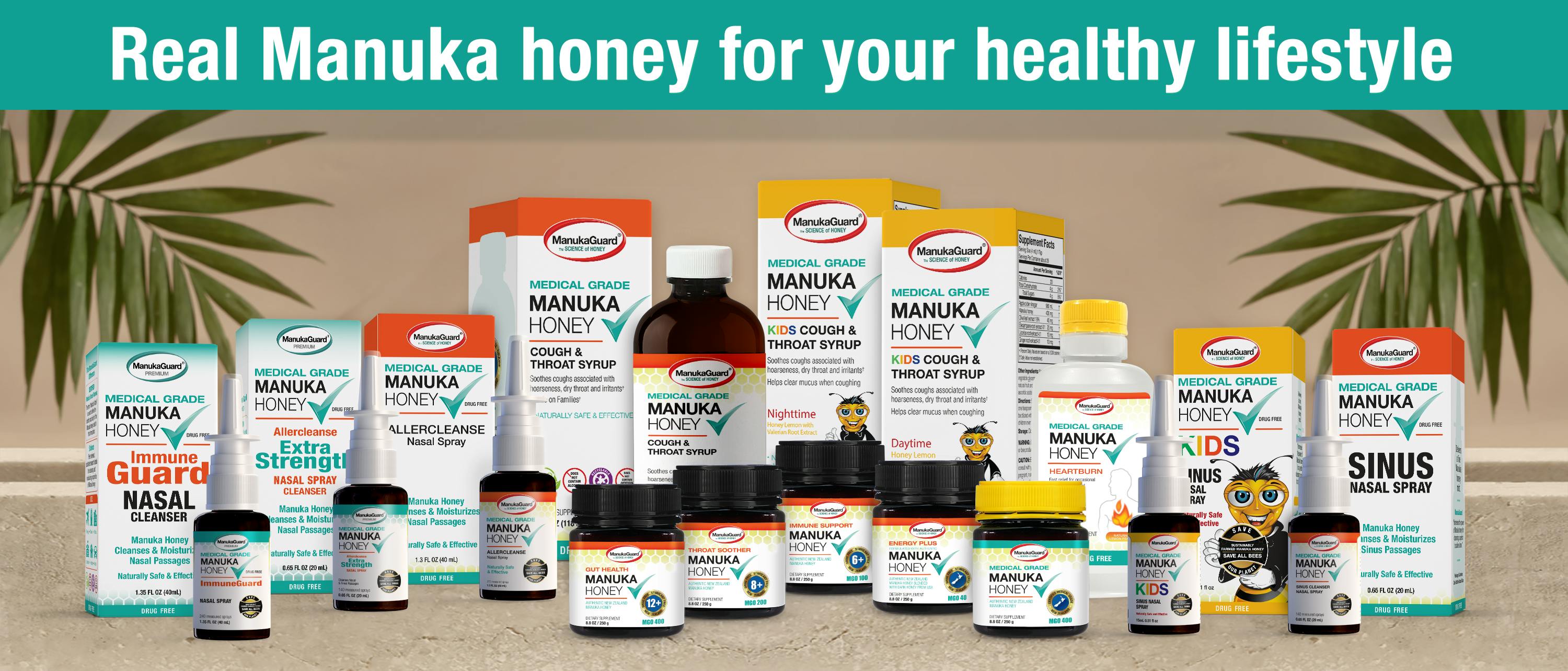
Are you a buyer on RangeMe? Browse ManukaGuard products here.
Vegan alternatives
Honey fraud is a big business, and according to the Food Fraud Database, it’s the third most frequently faked food after olive oil and milk, often diluted with sugar or other syrups to cut costs.
But as consumers turn towards plant-based foods, honey isn’t necessarily from bees these days. San Francisco, CA-based MeliBio makes vegan honey in a lab using produce-derived fructose and glucose and combines them with compounds from plants bees visit.
There is other vegan honey out there, but they don’t confer the health benefits of natural honey: Humble Honee, Just Like Honey, and Bee-Free Vegan Honey are made from ingredients like brown rice syrup, agave, and sugarcane juice.
At the end of the day, health benefits or none, honey’s simply tasty, and we’ll likely see more of it, whether in products we consume or lather onto our bodies.
Are you a honey supplier that wants to be a part of all the buzz? Join RangeMe today to get in front of the right buyers at the right time!

